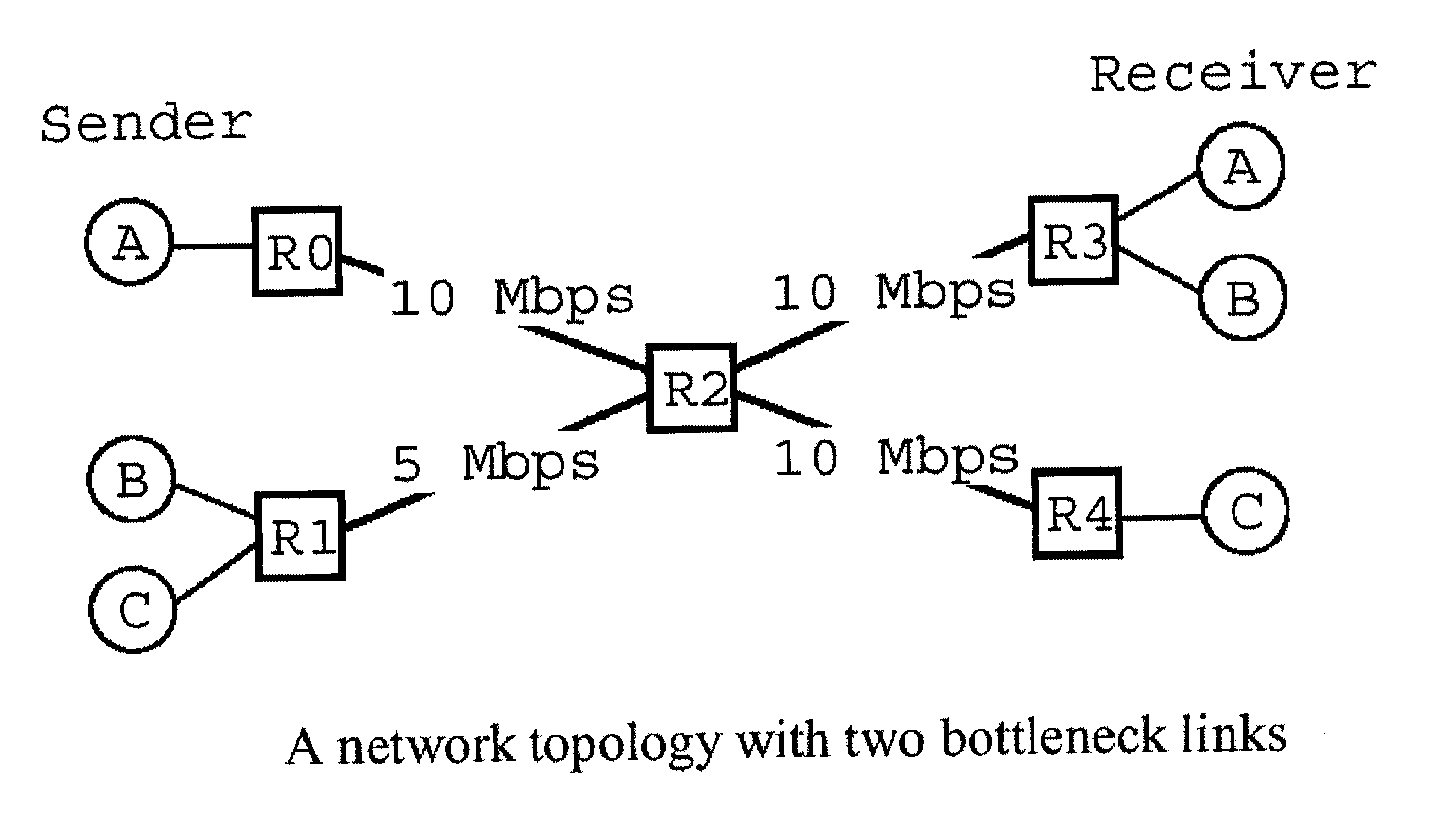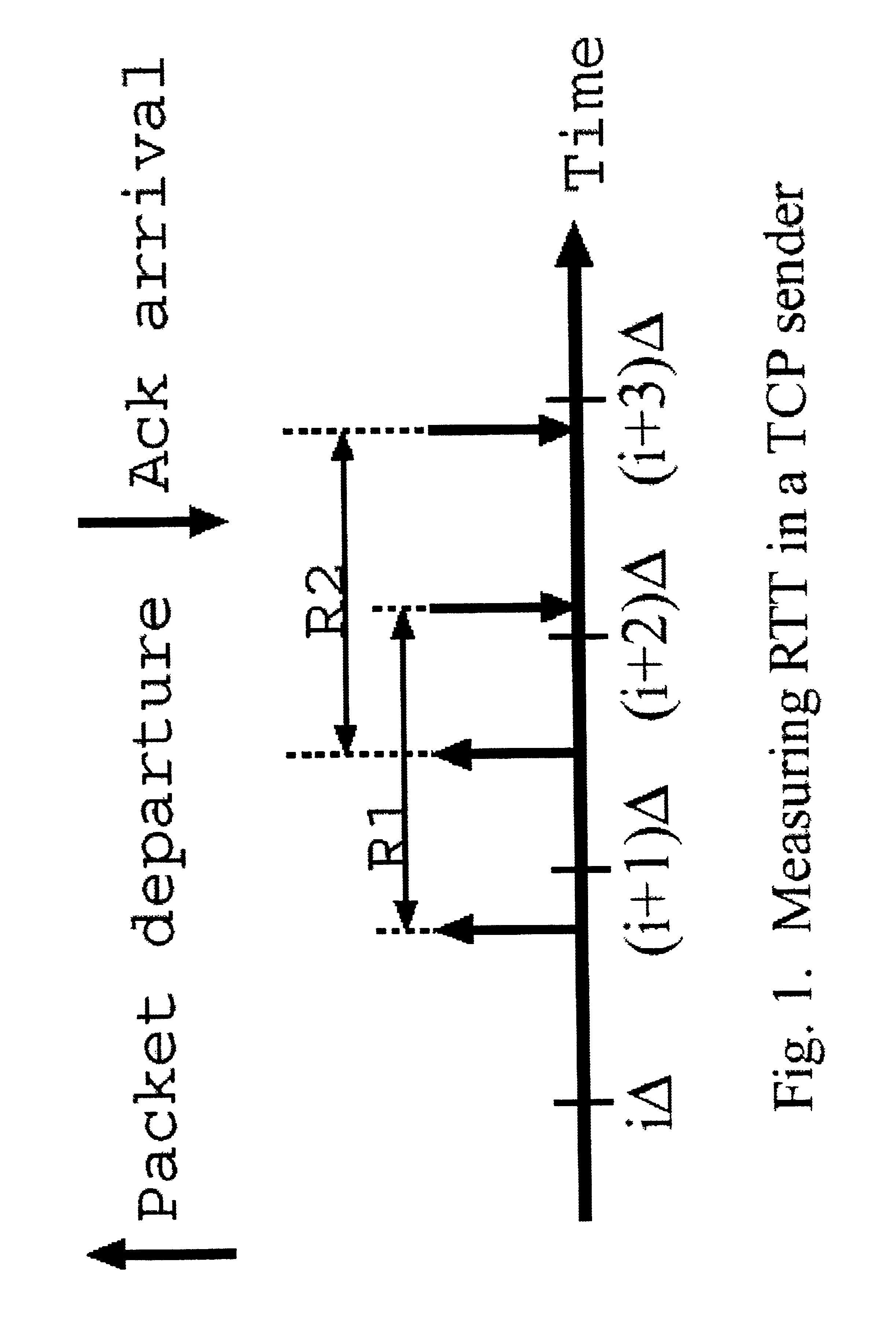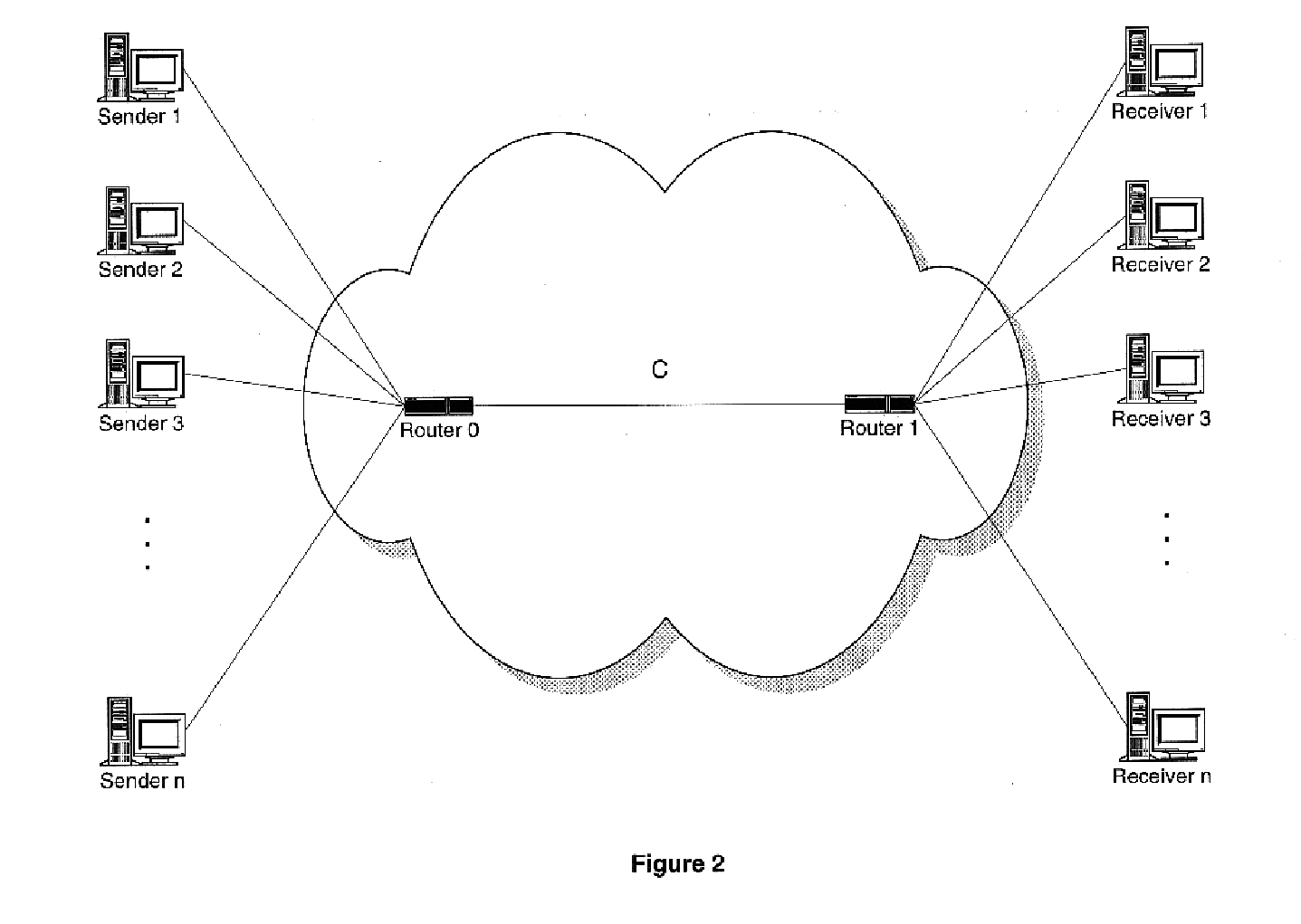Modeling link throughput in IP networks
a link throughput and network technology, applied in the field of computer data networks, can solve problems such as changes in drop rate, congestion of current computer networks, loss affecting queue build-up at routers,
- Summary
- Abstract
- Description
- Claims
- Application Information
AI Technical Summary
Benefits of technology
Problems solved by technology
Method used
Image
Examples
Embodiment Construction
Usually a link is considered to be a bottleneck when the arrival rate of incoming packets is higher than the departure rate (service rate), and the incoming packets are enqueued. A TCP flow's throughput is typically limited by the outmost bottleneck link, or by the most congested link on its path. Therefore, identifying bottleneck links in a network is an important part of traffic engineering.
Average queueing delay and packet drop rate produced by a link are good indication of the level of congestion, and can be used to identify if the link is a bottleneck in the network. Representative embodiments of the present invention provide an accurate estimate of traffic flow through each link in a given network. Various embodiments of the present invention are directed to techniques for computing average delay and loss rate for given flows, routing, and link characteristics. This enables the identification of bottleneck links in the network. This work is general and easily extensible to var...
PUM
 Login to View More
Login to View More Abstract
Description
Claims
Application Information
 Login to View More
Login to View More - R&D
- Intellectual Property
- Life Sciences
- Materials
- Tech Scout
- Unparalleled Data Quality
- Higher Quality Content
- 60% Fewer Hallucinations
Browse by: Latest US Patents, China's latest patents, Technical Efficacy Thesaurus, Application Domain, Technology Topic, Popular Technical Reports.
© 2025 PatSnap. All rights reserved.Legal|Privacy policy|Modern Slavery Act Transparency Statement|Sitemap|About US| Contact US: help@patsnap.com



